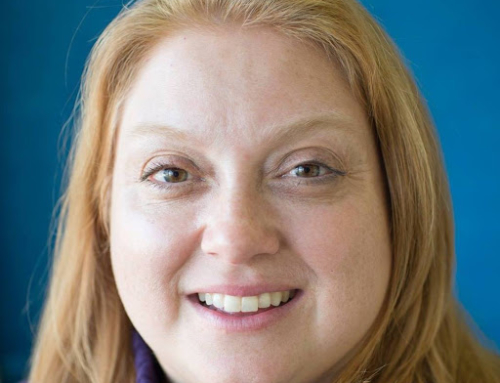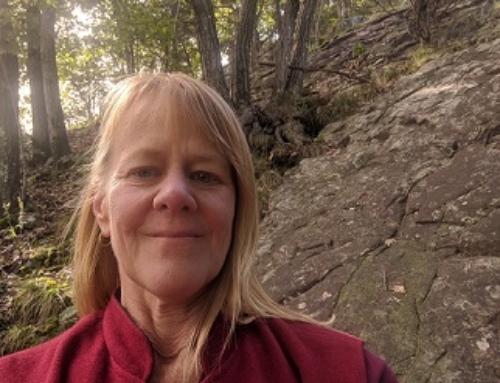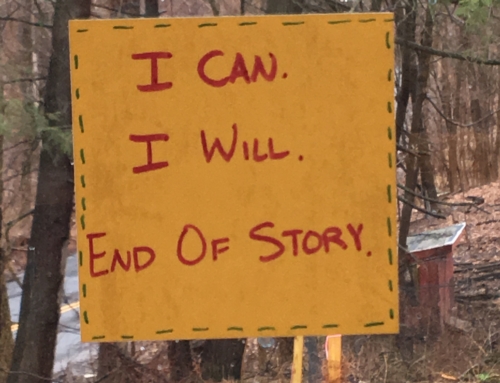In general it is very hard for me to differentiate one day from another as I go about my daily life, but the day of the Sandy Hook shooting is clearly and indelibly recorded in my memory. I will never forget standing in Manjares ordering coffee and learning that what started out being reported as a disturbing but not unprecedented incident was actually an unfathomable explosion of violence. All of us in Manjares that day, having never met before that moment, looked to each other for information, explanation, comfort and a sense of community. It felt so close to home for so many reasons: because I have worked in Newtown and know people who live there; because I am a parent whose children grew up in a similar town and a similar school system; because I am today part of a school community here at Common Ground.
Like many of you, I have been following the responses to Sandy Hook very closely. My reactions to what I have seen are complicated. I am not one to see the world in black and white. For me, characterizing the shooting at Sandy Hook as the product of “pure evil” lets us all off the hook for how we, as a society, have contributed to the making of this horrific event. Focusing strictly on implementing security measures in our schools ignores the root causes from which this event grew. It is not easy, however, to step back from the fear and the emotion, to take that deep breath and take the time to think through where actual danger lies, and what can be done to really root it out.
If we – whether as a school or as a society – are going to invest our limited resources in preventing events like this from ever occurring again, let’s make the right investment. Here at Common Ground we definitely do not have resources to waste on measures that do not get at the root, so we are taking some time to understand what the real risks are and where those risks originate. We are working hard to think through the impacts and implications of various scenarios for addressing those risks, and taking advantage of the many learning opportunities inherent in the discussions we have about this event as a staff and a community – around how our society and ourselves personally react to and treat mental illness, the role guns play in our communities (both urban and suburban), how we react to violence when it occurs in a place like Newtown or in a place like New Haven, what role fear does and should play in the decisions we make about how we are going to lead our lives going forward.
As context for this ongoing discussion it is important to understand that, while it may not feel that way in the face of the tragic events in Newtown, schools in general are very safe places. In 2009-2010 a total of 25 homicides were reported in schools nationwide. That same year the rate of crimes of all kinds in schools – everything from theft to homicide, both reported and unreported – was 40 per 1,000 students. This equates to 3.9% of all students in the US being the victims of a crime occurring at school – with 1.1% being victims of a violent crime. The crime rate in schools is not measurably different from the estimated total crime rate nation-wide. In contrast, however, this crime rate is significantly lower than the rate of reported crime in New Haven which stands at 73.35 per 1,000 residents. It should also be noted that the victimization rate in schools has been declining since 1992, and no significant difference in crime rate is discernible between urban and suburban schools. The bottom line is that in general it is safer for our children to be at school than walking the streets of the city.
While the statistics may tell us otherwise, it is hard for any of us to feel safe in school following the Newtown incident. But the fact is our students, like each of us, faces a more serious risk of injury or death while driving our cars to Common Ground, or crossing the street in New Haven, than we face here at school.
That is not to minimize the importance of being prepared if something were to happen here at Common Ground. We are in the process of evaluating what security measures it makes sense to invest in given our site, our work and a realistic evaluation of the risks we face. I am trying hard not to build a security system to address what may feel like a large risk but is actually a relatively small risk. Given who we are and what we do, I believe it is important that we not become a closed site, and prisoners of our own fear. Common Ground is a community resource. We think of ourselves as a public place where everyone is welcome. Obviously and severely impeding access will have a huge impact on both how we see ourselves and how our community interacts with us. It would significantly change the way we operate on a day to day basis, and the way we approach our world.
As we evaluate what investments we make in improved security, where Common Ground absolutely will continue to invest is in creating a community that is connected, inclusive, and caring, and embraces non-violent communication and skilled conflict resolution. This is really where the rubber meets the road, where we can begin to address the root causes of violence and despair. After all, the vast majority of violent crime that takes place is not the result of some random, unpredictable, evil perpetrator but emerges out of obvious and known areas of conflict such as gang activity, on-going domestic disputes, or intolerance for difference. Therefore, the real work is not in installing security systems but in building a community that not only helps understand and resolve known conflict, but that catches the Adam Lanzas of the world before they fall. This is the route we at Common Ground choose to focus on. It is admittedly the route of the optimist, and sometimes feels scary, but without optimism to guide us the world would be a much darker place.
Thank you for reading and I look forward to continued dialogue around this subject. I welcome your comments! In the meantime, I wish you all the very best today and every day. Here’s to peace, love, family, and community.





Leave A Comment